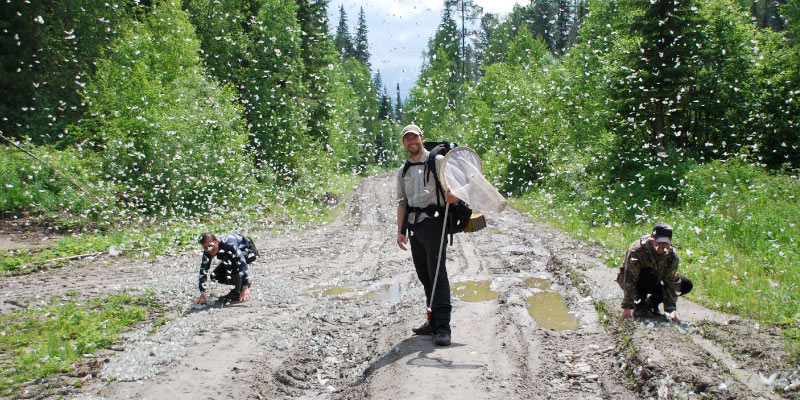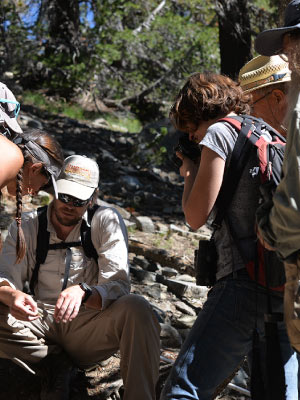
I’m grateful for the opportunity to reintroduce myself as the director of the Center for Ecology and the Environment (CEE), the newest research center in the Nelson Institute. CEE provides a welcoming community that acts as a nexus for faculty, staff, and students to share ideas, enhance scholarship, and promote ecology at the University of Wisconsin–Madison. Our priorities include:
- Organizing research, instruction, and outreach activities to support ecology at the UW and beyond
- Fostering a sense of “connectedness” within the community of UW ecologists (representing 23 academic units and more than 80 faculty members on campus)
- Advancing the initiatives and concerns of the community of UW ecologists
- Providing a gateway to information about UW ecology to people both within and outside the university

It has been an exciting two years since the inception of the Center for Ecology and the Environment (CEE)! We have held a wonderful series of symposia (fall and spring annually) that were well attended, and we provided a broad range of events for undergraduate and graduate student engagement in the ecological research community. Highlights of our work include the inception of a new undergraduate club (“WILD-SEEDS,” or Wisconsin Idea Leadership Development in Ecology Education, Diversity and Sustainability) that promotes professional development of the next generation of ecologists; an undergraduate job fair for ecological research on and off campus; graduate student recruitment and cohort-building events; leadership opportunities for graduate students, including a graduate student symposium in the spring that showcases recent grads; and events that highlight new faculty members and help build collaborations across campus.
As we move into the next few years, we hope to continue strengthening our community by broadening our interaction with interdisciplinary units across campus and increasing community engagement outside of the UW, with government, tribal, and non-profit stakeholders. We also want to ensure that the best graduate students in ecology choose UW–Madison, and so we are exploring the development of a new PhD degree progam in ecology and evolutionary biology.
Sean Schoville
Director, Center for Ecology and the Environment
Meet Sean Schoville
Among the Grasshoppers
When Schoville was a kid, he used to run around chasing grasshoppers. Now, they’re part of his research. “The goal of my research is to understand how organisms adapt and respond to environmental change,” Schoville says. One of his lab’s projects is studying how grasshoppers adapt to climate change. To do this, they headed to the Rocky Mountains. “We’re interested in this very sharp environmental gradient: it’s very steep, but it’s a very short distance. How does the same species of grasshoppers solve problems at different elevations?”
Step Aside, Cockroach
You may have heard that cockroaches are resilient enough to survive a nuclear bomb. Turns out, that may be a bit exaggerated. The most resilient extremophile (an organism that can survive in extreme, harsh conditions) is the teeny-tiny midge. “They’ve developed strategies to survive extremes by basically desiccating themselves,” explains Schoville. “They slow down essential processes to where they’re almost ceasing all cellular functions, but then they can recover from that.” Because of this strategy, midges can be found from arctic to desert environments. “That general strategy makes them highly resistant to extreme cold, extreme desiccation, extreme UV exposure, extreme gamma radiation from nuclear bombs, and so forth.” Better luck next time, cockroach.
Please Don’t Squash
“Western culture has very negative perceptions of insects. They’re seen as disgusting, annoying, maybe disease-causing,” Schoville says. “Around the world, they’re not seen that way. And in some cultures, they’re actually valued as important resources.” Before you grab the swatter, consider the profound impact insects have on our planet. “They’re the most diverse animal group on the planet, and that means that any ecosystem that includes them is entirely dependent on them.” From breaking down decaying matter to providing pollination to crops, our many-legged friends are critical. “And then I would just say, lastly, aesthetically, they’re just gorgeous!”